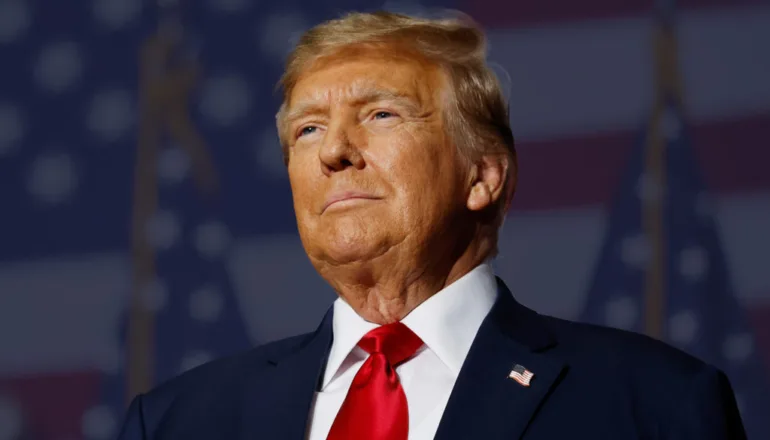US President Donald Trump announced Thursday that he will decide within the next two weeks whether to join Israel’s military strikes on Iran, citing a “substantial” chance of diplomatic negotiations to end the conflict.
This pause could create space for diplomacy after intense speculation over whether the US would directly intervene militarily against Tehran.
White House Press Secretary Karoline Leavitt addressed the mounting questions, reading a statement from Trump following what she described as “a lot of speculation” about America’s potential involvement.
“Given the substantial chance that negotiations with Iran may soon take place, I will make my decision within the next two weeks,” Trump said.
While Trump has previously set flexible deadlines on other major issues, including the Russia-Ukraine war, Leavitt insisted this is not a delay. “If diplomacy is possible, the president will pursue it, but he remains prepared to act with strength,” she said.
Leavitt also underscored the urgency, warning that Iran could produce a nuclear weapon within “a couple of weeks” if its supreme leader orders it. “Iran has all the necessary materials — they only need a decision from the supreme leader to complete production,” she added.
Iran denies seeking nuclear weapons, maintaining its nuclear program is for peaceful purposes.
Diplomatic signals and ongoing discussions
Trump revealed Wednesday that Iran had requested to send officials to the White House to negotiate a nuclear deal and de-escalate the conflict with Israel, although Tehran denied such a request.
Leavitt confirmed ongoing “correspondence” between Washington and Tehran since Israel’s recent strikes on Iran.
However, there are no current plans for Trump’s special envoy Steve Witkoff to join European diplomats meeting Iran’s foreign minister in Geneva on Friday.
Trump has held daily meetings with his national security team in the White House Situation Room since Tuesday and will continue until his departure for the NATO summit in the Netherlands on Monday.
Balancing diplomacy and military strength
The two-week timeline follows a tense period in which Trump publicly considered joining Israel’s strikes and called Iran’s supreme leader, Ayatollah Ali Khamenei, an “easy target.”
Though Trump spent months pursuing a diplomatic replacement for the 2015 nuclear deal he withdrew from in 2018, he has recently endorsed Israel’s attacks on Iran’s nuclear and military sites while debating US involvement.
A significant factor is the US’s exclusive possession of massive “bunker buster” bombs capable of destroying Iran’s critical Fordo nuclear enrichment facility.
“We have capabilities no other country on this planet possesses,” Leavitt said.
The White House urged Trump supporters to “trust” the president as he weighs his options.
Several prominent voices in Trump’s “Make America Great Again” base, including commentator Tucker Carlson and former aide Steve Bannon, have opposed US strikes on Iran.
Trump’s promise to end America’s “forever wars” in the Middle East was a key message in his 2016 and 2024 campaigns.
“Trust in President Trump. He has incredible instincts,” Leavitt concluded.
AFP


